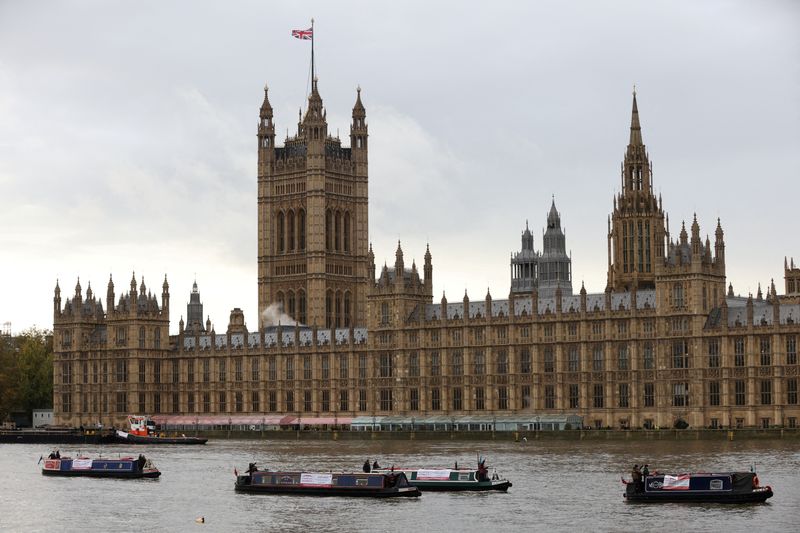LONDON (Reuters) - More than 40 pro-low tax lawmakers from Britain's ruling Conservative Party have accused official forecasters of making errors that influenced policymaking and called on the government to ensure they were not "holding back the country's recovery".
In the latest attack on the watchdog, the Conservatives urged finance minister Jeremy Hunt to fix what they called the Office for Budget Responsibility's (OBR) "systemic issues" before the March 6 budget, possibly his last before an election this year.
The low-tax campaign group, the Conservative Way Forward, said that since the OBR was created in 2010 - a period which included the COVID-19 shock to the economy - the combined total of errors in its growth forecasts was over 500 billion pounds ($636 billion).
Those for government borrowing, they said, "have been wide of reality by over 600 billion pounds in total".
"The centrality of the OBR to economic decision-making makes it vital that its systemic issues are resolved as a matter of urgency," the lawmakers, including former interior ministers Priti Patel and Suella Braverman, said in a letter to Hunt.
The OBR did not immediately respond to a request for comment. The independent OBR provides the economic forecasts that underpin the government's budgets and assesses the costs of its tax and spending decisions.
Some Conservative lawmakers have long criticised the watchdog, saying its forecasts have hamstrung the government in what it can do to spur growth, such as cut taxes, a measure many Conservatives want before the next election.
In November, the OBR said Hunt had only 13 billion pounds of "fiscal headroom" - space to cut taxes or raise spending while still meeting his rules to cut debt - less than half the average that finance ministers have had since 2010.
In August, the OBR said its own assessment of its forecasting track record showed the difference between its projections for economic growth and borrowing were small and the gaps had been similar to those of other forecasters.
Rupert Harrison, who was the chief adviser to former finance minister George Osborne, said the OBR's transparency was preferable to the "secrecy and opacity that came before" when forecasts were made by the government.

"Blaming the OBR is just trying to escape from the constraints of reality, as we saw so catastrophically in autumn 2022," Harrison said on X, referring to the "mini-budget" crisis when tax cut proposals by former Prime Minister Liz Truss - that were not costed by the OBR - triggered a bond market rout.
($1 = 0.7864 pounds)